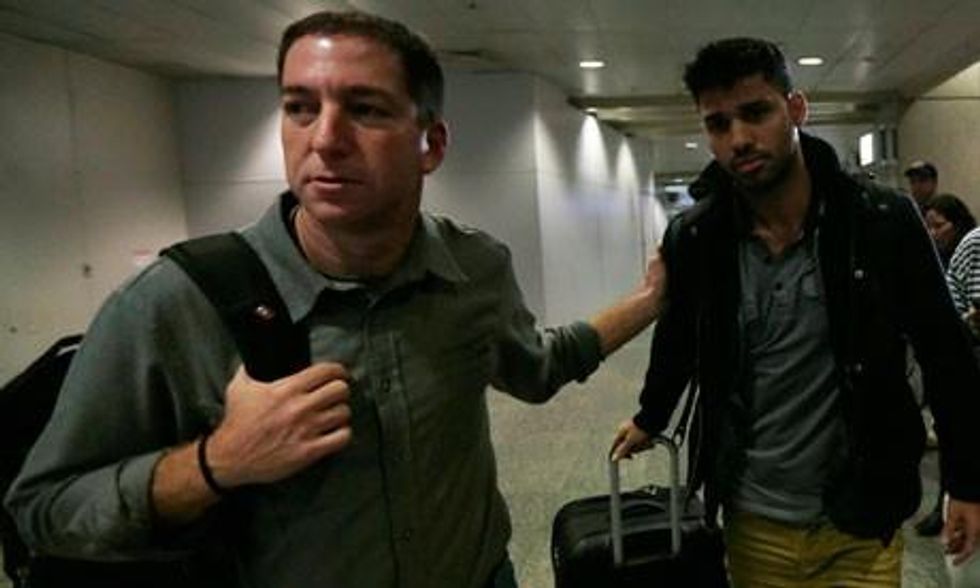On Monday night I was held and questioned at an airport because of my work investigating western counter-terrorism abuses in Yemen. But this did not happen in Sanaa or at the hands of some tyrannical regime. It happened at Gatwick. British officials interrogated me under the controversial schedule 7 provision of the Terrorism Act 2000 - the same provision recently used to chilling effect to detain David Miranda.
Not satisfied with clamping down on attempts to report on blanket surveillance and the "war on terror", the UK government seems to have branched out to people like me - activists working to uncover and prevent such abuses.
I have visited the UK before without incident. I have long admired British culture - I spent part of my education in Wales. This time I came at the invitation of Chatham House to speak at a seminar on Yemen. Standing at passport control, bleary eyed from the long flight, I expected another routine trip.
The border agent asked what my job is. When I explained I was the Yemen project co-ordinator for London-based legal charity Reprieve he said, "Sir, please come with me. We have a Terrorism Act and I have some questions I need to ask you."
I was then taken away from the desk and interrogated for over an hour. The suited man quizzed me about my political opinions. When I suggested that these should have no bearing on whether I am allowed into the country, the agent threatened to hold me for the maximum extent of his powers. "I am authorised to detain you for up to nine hours," he said. "We have only been here for an hour, but we can be here for up to nine. So you understand what this can lead to."
He took my Reprieve business card and disappeared. When he returned - I would guess having made use of a computer and a popular search engine - he suggested he had detained me not merely because I was from Yemen, but also because of Reprieve's work investigating and criticising the efficacy of US drone strikes in my country.
A telling exchange followed: "So," he asked, "does your organisation have anything to do with terrorism in Yemen?"
I replied, "My organisation addresses counter-terrorism abuses inside the country."
"Exactly!" He said. "Why doesn't your organisation do something about the terrorism that happens in your country, instead of focusing on the counter-terrorism abuses?"
What could I reply? Of course I oppose terrorism. But I also oppose the secret air war in my country - waged by the US, apparently with covert support from the UK and others. The drone war in my homeland has claimed innocent lives and terrorised civilians. It operates wholly outside the law, and serves only to fuel anti-western sentiment.
These are considered views. I formed them in conversations with dozens of witnesses, victims, and officials across Yemen. I was not about to apologise for them to this interrogator.
He went on, "What if your organisation did something bad [exactly what he did not specify] to your government - what if you are here because of the bad things your organisation has done to your government? The relations between Yemen and the UK are important. I want to know that your organisation is not disrupting them."
He seemed uninterested in the truth - which is that I have spent months seeking constructive solutions to Yemen's problems. At home in Yemen I am a member of the National Dialogue - a group established to map out the country's democratic future. (We're a bit like a constitutional convention.) Earlier this year, our delegates voted - by an over 90% majority - to ban the extrajudicial killing of Yemeni civilians, by drone or otherwise.
So despite what the interrogator suggested, opposing drones is hardly a fringe view.
More to the point, why should it matter? Criticising counter-terrorism policy in Yemen may irritate or embarrass UK and US governments. But it is not a crime, and it is not proper grounds to detain someone at the border. The British authorities appear to disagree.
Even we in Yemen heard of David Miranda's nine hours in custody. Then I was stopped. Who will be the next human rights worker caught in the net of schedule 7?
